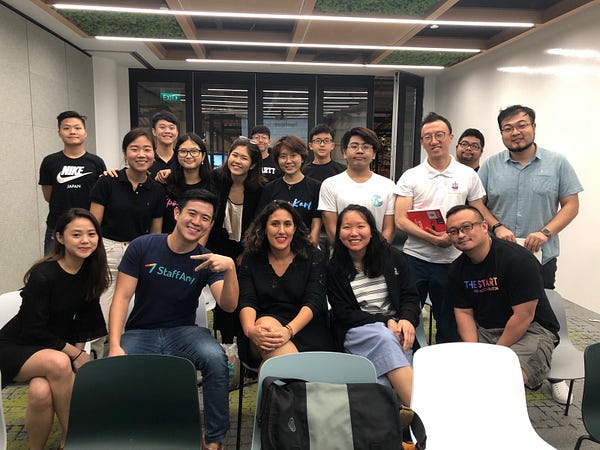Tik Tok is not as sticky as it seems, but more important, Bytedance isn’t going all-in

Let us begin this article with an anecdote. A quick survey of the young employees at e27, my teenage cousin, and my friend’s kid all resulted in the same word when asked about Tik Tok.
“It’s so cringe-worthy.”
This is true, but it is also part of the charm of the app. It is a place to enjoy watching people making fools of themselves and being rewarded for giving up their ‘cool’. As everyone eventually figures out at some point in their mid-20s, being cool is a gigantic waste of time and energy. In life, it is far better to be Phil Dunphy than Michael Bluth.
The earnest sweetness has helped the company cross 500 million users. It has clearly become the next ‘best bet’ social media startup to dethrone Facebook — and, more importantly, its incredibly valuable Instagram property.
Instagram is twice the size of Tik Tok (it claims over one billion monthly active users), but 500 million people on Tik Tok is enough to strike fear into the heart of Zuckerberg.
Plus, it has the much desired demographics. Two-thirds of the platform is used by people under the age of 30; it may be the most successful Chinese startup in the US and it is seeing huge growth in India. So, theoretically, it could control huge user numbers from the world’s three biggest countries by population.
Also Read: Warung Pintar CEO: How my grandmother inspired our vision for Indonesian mom-and-pop shops
Tik Tok grew by over 400 per cent between 2017 and 2018 and is now a mainstream app. The question is, will this explosion continue? Or, are we approaching the ceiling whereby user growth will flatten a la Snapchat and Twitter?
Unfortunately (there, my rooting interests have been revealed), I think we are reaching the ceiling. Tik Tok does not represent a true threat to Instagram and the reason is fairly simple:
The product is not conducive for content creation and Bytedance will not go all-in on challenging Facebook.
Creating content
Instagram attracts so many users thanks largely to the dramatic increase in smartphone camera quality. For most people, it is very easy to grab a picture in 30 seconds, throw it through some filters or third party apps and publish a photo of reasonable quality.
Instagram Stories is even easier. Just lift up the camera, pretend life is awesome, ad a poll or gif and voila! You are now Instafamous.
Tik Tok is an entirely different beast.
While it has the same ‘pretty people’ advantage as any social network, Tik Tok also has a significantly higher barrier to entry for content creators. Currently, my feed includes teenagers jumping off their balcony onto a beanbag chair, acrobats doing front-flips over their cars, and a time lapse of a fantastic piece of artwork.
This videos are all fantastic, but they require A LOT of effort. Not minutes, but hours. If we include transitions, music, editing, costumes, make-up, dancing, and trends, the platform becomes intimidating for new users.
It is fun to scroll through these videos for a half-hour every now and then, but it eventually becomes repetitive and loses its stickiness after awhile.
Statistically, only 29 per cent of users open the app once per month. A data point that backs up the eye test.
Instagram works because, after the inevitability of getting bored with the lives of others, the next step is to bore others with your life. Then, visiting the app is more about checking up on how the latest post performed.
Tik Tok has similar qualities, but again, it takes at least an hour to create a video that has any chance of getting traction. More likely, it becomes a half-day project. That is a lot of effort to put into a few likes.
Then, to circle back around, there is the cringe-worthiness of it all. It is pleasant to watch someone pretend they can get a boyfriend by turning on the faucet and then flicking their bathroom lights on and off. It is an entirely different proposition to convince the average person to do this themselves.
Fly in the ointment
Recently, in the US, something has happened that does significant damage to this argument. It is called “Old Town Road”, a song by Lil Nas X that has absolutely exploded and will certainly be the most hated song in the country by the end of 2019.
It also was made popular almost entirely through Tik Tok, a platfrom Lil Nas X told The Verge he was quite familiar with.
Lil Nas X uploaded the song for free on Tik Tok, so technically he gets zero dollars out of the song’s virality. However, the song became so popular it began to leak beyond Tik Tok, where it eventually gained the attention of mainstream channels and is now, easily, the most popular song in America.
Is this the future of Tik Tok? Is it the next YouTube? Which is more of a platform that creates stars rather than one where already-stars connect with fans.
Maybe Tik Tok is the place where nobodies can launch America’s ‘Hit of the Summer’.
Also Read: [Updated] Carousell raises US$56 million at valuation of US$550 million
Tik Tok seems to think so, as the South China Morning Post reported today, the company is working to launch a Spotify-type of service. While this is a more logical step than its Lark product (which I will discuss below), it points to a major issue for Tik Tok’s ability to compete with Instagram:
Bytedance does not appear to want to go all-in.
Focus, focus, focus
Bytedance is using its newfound success as an opportunity to expand into all sorts of verticals, and in doing so risks becoming a Master of None.
This month, the company launched Lark, a Slack-like productivity tool. As mentioned above, it appears a Spotify service in on the way.
It is attacking an entirely different user, and in doing so will need to shift resources away from Tik Tok.
Imagine if Slack decided to launch a social media platform? They would be pilloried by investors, the media, and their users. For some reason, Bytedance has largely avoided criticisms for its decision to launch Lark.
The company has found itself in a position to compete with the global giants Facebook, Snap Inc., and Twitter. Now it wants simultaneously build a product to compete with Google, Slack, and Apple?
At this point, Bytedance should just launch a food delivery service like the rest of the tech ecosystem.
As more and more stories come out asking if Tik Tok will replace Instagram, remind yourself that it will not. Here are the simple reasons.
1. Tik Tok is not sticky – only 29 per cent of users open the app once per month
2. Tik Tok is hard for newbies to build a following
3. Bytedance has not gone all in on Tik-Tok
Tik Tok may very well replace Snapchat, but Instagram? No way.
—
The post Why Tik Tok is not a real competitor to Instagram appeared first on e27.
























 Singapore-based VC arm of
Singapore-based VC arm of